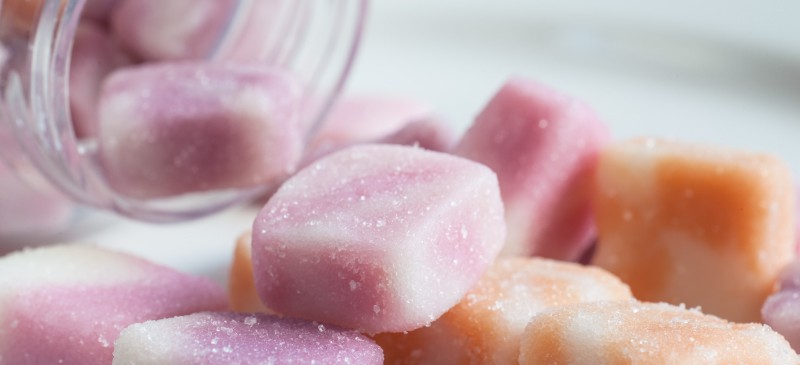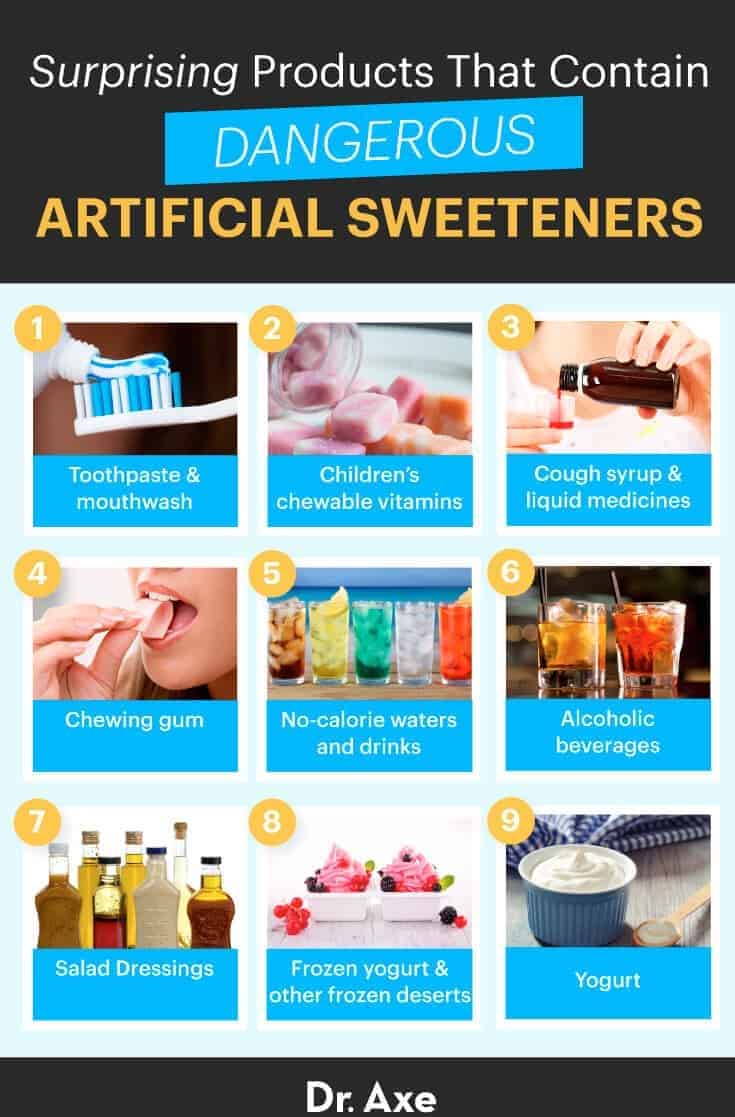This Dr. Axe content is medically reviewed or fact checked to ensure factually accurate information.
With strict editorial sourcing guidelines, we only link to academic research institutions, reputable media sites and, when research is available, medically peer-reviewed studies. Note that the numbers in parentheses (1, 2, etc.) are clickable links to these studies.
The information in our articles is NOT intended to replace a one-on-one relationship with a qualified health care professional and is not intended as medical advice.
This article is based on scientific evidence, written by experts and fact checked by our trained editorial staff. Note that the numbers in parentheses (1, 2, etc.) are clickable links to medically peer-reviewed studies.
Our team includes licensed nutritionists and dietitians, certified health education specialists, as well as certified strength and conditioning specialists, personal trainers and corrective exercise specialists. Our team aims to be not only thorough with its research, but also objective and unbiased.
The information in our articles is NOT intended to replace a one-on-one relationship with a qualified health care professional and is not intended as medical advice.
5 Worst Artificial Sweeteners, Plus Healthy Alternatives
November 14, 2023

Artificial sweeteners, or non-nutritive sweeteners as they are sometimes referred to, have been controversial since they were first introduced to the market in the 1950s, and scientific research shows they are associated with many dangerous side effects.
Introduced to satisfy consumers’ sweet tooth, these artificial sweeteners with no calories seemed, at the time, like good alternatives to refined sugars and natural sweeteners and ideally suited to low-carb diets. (Some on Paleo, Atkins or the keto diet plan still use these artificial sweeteners.)
However, the side effects simply aren’t worth it. These fake sweeteners cause symptoms that range from headaches and migraines to weight gain and even more serious conditions, like cardiovascular disease.
Common Types
Here are some of the most popular (and dangerous) artificial sweeteners on the market today.
It’s important to be able to recognize artificial sweeteners on the labels of pre-packed and processed foods. Check all ingredient labels carefully for the following.
- Aspartame
- Acesulfame potassium
- Alitame
- Cyclamate
- Dulcin
- Equal
- Glucin
- Kaltame
- Mogrosides
- Neotame
- NutraSweet
- Nutrinova
- Phenlalanine
- Saccharin
- Splenda
- Sorbitol
- Sucralose
- Twinsweet
- Sweet ‘N Low
- Xylitol
Dangers and Side Effects
1. Addictive
What many people don’t realize is that artificial sweeteners also can cause a dangerous addiction — an addiction to overly sweet foods. They retrain the taste buds to need more and more sweeter and sweeter foods. This leads to even greater incidences of obesity, type 2 diabetes, kidney damage and so much more.
How does the use of artificial sweeteners contribute to addiction? Researchers believe that part of the reason is that individuals will just find other foods to fill the calorie gap in order to become satiated.
We’ve all seen people order diet sodas, only to then order one of the most calorie-ridden items on a menu. That’s because non-nutritive sweeteners provide virtually no sense of satisfaction.
2. May Lead to Weight Gain
What’s the difference between a nutritive sweetener and a non-nutritive sweetener? Caloric content. Nutritive sweeteners contain calories while non-nutritive sweeteners have zero calories or are virtually calorie-free.
No-calorie sweeteners may sound like a good idea when you look to lose weight, but they aren’t. Their side effects far outweigh potential benefits of a low-calorie sweetener, and they are actually linked with weight gain, not weight loss.
The results of a 2017 randomized trial suggest artificial sweeteners may increase body mass index, weight, metabolic syndrome and type 2 diabetes, although more information is needed to be conclusive.
There is further evidence, however. For instance, one study noted that “accumulating evidence suggests that frequent consumers of these sugar substitutes may also be at increased risk of excessive weight gain, metabolic syndrome, type 2 diabetes, and cardiovascular disease.”
That’s not all. A paper published in 2017 had some scathing words for artificial sweeteners:
Although artificial sweeteners were developed as a sugar substitute to help reduce insulin resistance and obesity, data in both animal models and humans suggest that the effects of artificial sweeteners may contribute to metabolic syndrome and the obesity epidemic. Artificial sweeteners appear to change the host microbiome, lead to decreased satiety, and alter glucose homeostasis, and are associated with increased caloric consumption and weight gain. Artificial sweeteners are marketed as a healthy alternative to sugar and as a tool for weight loss. Data however suggests that the intended effects do not correlate with what is seen in clinical practice.
3. Linked to Cancer
Holly Strawbridge, former executive editor of Harvard Health, points out that while U.S. Food and Drug Administration studies have “ruled out cancer risk” for non-nutritive sweeteners, all of the studies conducted were based on significantly smaller doses than the 24 ounces a day average of diet soda. As portion sizes continue to grow out of control with 30-ounce, 40-ounce and even 50-ounce fountain sodas, it’s vital to recognize that these portions have not been evaluated for their safety.
Furthermore, research published in 2022 evaluated artificial sweeteners and cancer risk by utilizing data from the NutriNet-Santé population-based cohort study. After revealing the consumption of these sweeteners in 102,865 French adults, the researchers concluded: “In this large cohort study, artificial sweeteners (especially aspartame and acesulfame-K), which are used in many food and beverage brands worldwide, were associated with increased cancer risk.”
4. Associated With Metabolic Syndrome and Diabetes
A study on the effects of artificial sweeteners on atherosclerosis found that daily consumption of drinks with artificial sweeteners created a 35 percent greater risk of metabolic syndrome and a 67 percent increased risk for type 2 diabetes. Atherosclerosis is when plaque builds up inside the arteries, leading to strokes, heart attacks and even death.
There is additional evidence that links artificial sweeteners to the development of glucose intolerance and other metabolic conditions that result in higher-than-normal blood glucose levels. According to a study published in Trends in Endocrinology and Metabolism, frequent consumption of sweet-tasting, non-caloric foods interferes with metabolic function.
5. Can Lead to Gut Issues
A 2018 study published in Inflammatory Bowel Diseases also revealed that the artificial sugar, sucralose (otherwise known as Splenda) with maltodextrin, intensified gut inflammation in mice that carry Crohn’s-like diseases. Specifically, the artificial sweetener increased the number of Proteobacteria — a microbe bacteria associated with E. coli, Salmonella and Legionellales — in the mice who carried a Crohn’s-like disease.
Additionally, the ingestion of artificial sugar intensified myeloperoxidase (an enzyme in white blood cells) activity in individuals who had a form of inflammatory bowel disease. This study indicated that it may be practical to track Proteobacteria and myeloperoxidase in patients to adjust their diets and monitor disease and gut health.
That’s not all. Artificial sweeteners have been shown to negatively regulate gut microbiota and can even increase harmful gut bacteria.
Where Dangerous Sweeteners Hide
People are often surprised at how often dangerous artificial sweeteners are included in prepared foods, medications and beverages. Here are a few surprising examples of where to check for potentially dangerous sweeteners.
- Toothpaste and mouthwash
- Children’s chewable vitamins
- Cough syrup and liquid medicines
- Chewing gum
- No-calorie waters and drinks
- Alcoholic beverages
- Salad dressings
- Frozen yogurt and other frozen deserts
- Candies
- Baked goods
- Yogurt
- Breakfast cereals
- Processed snack foods
- “Lite” or diet fruit juices and beverages
- Prepared meats
- Nicotine gum
This isn’t an exhaustive list. Please carefully read the labels of the foods you purchase to ensure you don’t consume these dangerous chemicals.

5 Worst Artificial Sweeteners
1. Aspartame
The U.S. Food and Drug Administration approved aspartame decades ago. It’s currently used in thousands of consumer foods and drinks, along with prescription drugs and over-the-counter medications. It hides in places we don’t expect!
Because aspartame isn’t heat-stable, it’s typically found in drinks and foods that haven’t been heated.
According to an animal study published in the American Journal of Industrial Medicine, “A re-evaluation of the current position of the international regulatory agencies must be considered an urgent matter of public health.” This recommendation is due to the study’s findings that aspartame has carcinogenic effects.
Animal research has also found that aspartame may impair memory performance and increase oxidative stress in the brain.
In addition, if you are pregnant or nursing, avoid this dangerous artificial sweetener at all costs. A 2014 study points to alarming news for women who consume artificial sweeteners during pregnancy or while breastfeeding. It appears that aspartame, in particular, can predispose babies to metabolic syndrome disorders and obesity later in life.
Common side effects of aspartame include headaches, migraines, mood disorders, dizziness and episodes of mania.
2. Sucralose
Sucralose, derived from sugar, was originally introduced as a natural sugar substitute. However, in reality, it’s a chlorinated sucrose derivative.
Sucralose was originally found through the development of a new insecticide compound and wasn’t originally intended to be consumed.
At 600 times sweeter than sugar, it’s easy to see how the use of sucralose can contribute to an addiction for overly sweet foods and drinks.
A study published in the Journal of Toxicology and Environmental Health found that cooking with sucralose at high temperatures can generate dangerous chloropropanols — a toxic class of compounds. Human and rodent studies demonstrate that sucralose may alter glucose, insulin and glucagon-like peptide 1 levels.
Last but not least, it isn’t biologically inert, meaning that it can be metabolized and have a toxic effect on the body.
3. Acesulfame K
Composed of a potassium salt that contains methylene chloride, acesulfame K is routinely found in sugar-free chewing gum, alcoholic beverages, candies and even sweetened yogurts. It’s often used in combination with aspartame and other noncaloric sweeteners.
ACE K has undergone the least amount of scientific scrutiny even though long-term exposure to methylene chloride, a main chemical component, has been shown to cause nausea, mood problems, possibly some types of cancer, impaired liver and kidney function, problems with eyesight, and more.
In addition to sweetening foods, it’s becoming increasingly popular as a “flavor enhancer.” ACE K is heat-stable and routinely found in highly processed foods and baked goods. The human body can’t break it down, and it’s believed to negatively affect the metabolism.
4. Saccharin
In the 1970s, saccharin and other sulfa-based sweeteners were believed to possibly cause bladder cancer, and it was required to carry the following warning label: “Use of this product may be hazardous to your health. This product contains saccharin, which has been determined to cause cancer in laboratory animals.”
The FDA removed this warning, but many studies continue to link saccharin to serious health conditions. Sadly, it’s the primary sweetener for children’s medications, including chewable aspirin, cough syrup, and other over-the-counter and prescription medications. It’s believed that saccharin contributes to photosensitivity, nausea, digestive upset, tachycardia and some types of cancer.
5. Xylitol (Erythritol, Maltitol, Mannitol, Sorbitol and other sugar alcohols that end in –itol)
Sugar alcohols like xylitol aren’t absorbed well by the body and cause an allergic reaction for those who have a sensitivity to them. In addition, they have gastrointestinal side effects that include bloating, gas, cramping and diarrhea.
Xylitol in particular is linked to issues such as:
Special note to dog owners: Sugar alcohol-based artificial sweeteners are life-threatening toxins to dogs. Be mindful of breath mints, candies, sugar-free gum, frozen desserts and other foods when your pets are around.
Healthier Alternatives
So, what are your options when you have a sweet tooth? All natural sweeteners — including maple syrup, coconut sugar, stevia, fruit purees and raw honey — are great, healthy substitutions. Allulose is another natural sweetener to keep your eyes on. Keep packets of stevia with you so you don’t have to resort to artificial sweeteners provided by restaurants and cafes.
Start working to retrain your palette to enjoy the natural sweetness of foods, not added sweeteners. Try adding other flavors like tangy, tart, warm and savory to please your palette. For example, vanilla, cocoa, licorice, nutmeg and cinnamon enhance the flavor of foods, so you need less sweetness.
When you crave a sweet drink, try homemade infused waters or even Watermelon Agua Fresca. It’s a light, sparkly and refreshing drink packed with nutrients and natural sweeteners. Start sweetening your iced tea with honey, coconut sugar or even maple syrup for a twist.
For a special (and healthful) treat, try Peppermint Patties sweetened with honey and packed with all the health benefits of coconut oil. Be creative, and experiment with new foods, healthy sweeteners and added flavors that keep you satisfied.
Research shows that artificial sweeteners don’t satiate you the way real foods do. Instead, you end up feeling less satisfied and more prone to eating and drinking more, resulting in weight gain, in addition to potentially suffering dangerous side effects associated with artificial sweeteners.










